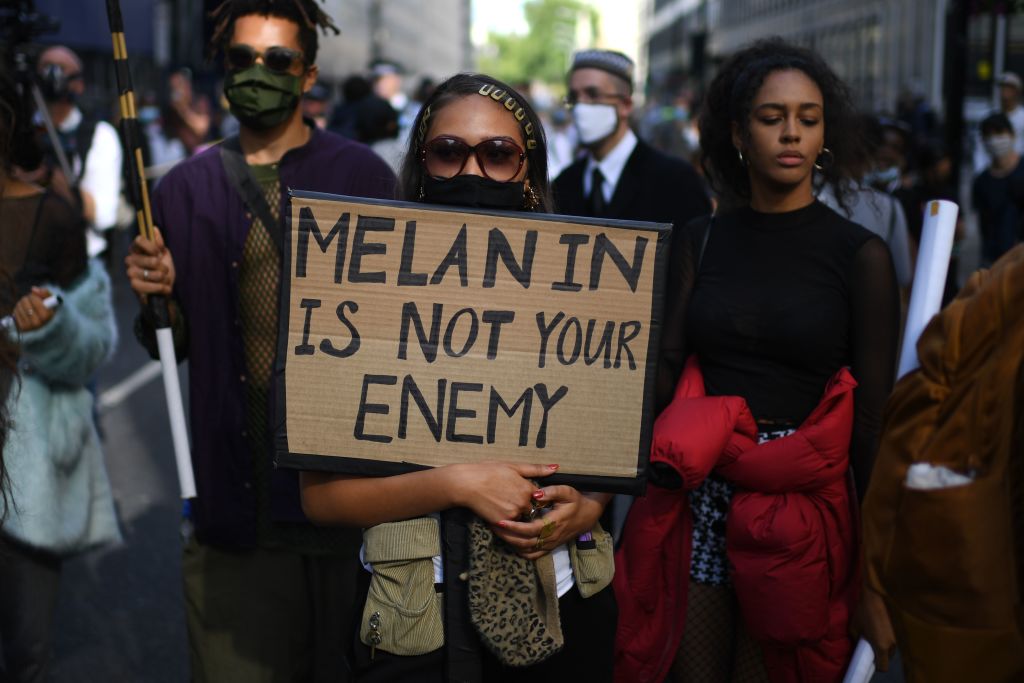In the last few months we’ve been told that Britain is a fundamentally racist society, that the colour of your skin holds you back in life if you’re not white, that history, education and, in fact, all white people, are inherently racist. Too often, we hear this from the media, from universities and from many areas of the establishment. I worry that this trend is deeply damaging.
Of course, there are problems in Britain. But there are problems in all countries, and at the very least, we have a very strong foundation to make positive change, if it is needed. We have freedom of speech, democracy, a free education system, an established justice system, a powerful sense of fair play – that is more than most places and I think we should be grateful for that. Not all countries are as forward-thinking on race as Britain.
But, yes, racism is still a problem and there is more we can do to tackle it. However, I believe that the only way we can resolve problems is if we can have nuanced, respectful conversations in good faith, conversations that seek to delve deep into social issues, tell the truth about them and find meaningful solutions.
And here is where The Equiano Project, set up by Inaya Folarin Iman, a young writer and free speech campaigner, comes in. It’s a forum seeking to promote free speech on issues of race in particular but also wider culture and politics. Last week, I spoke at the project’s launch event alongside Trevor Philips, Helen Pluckrose, Ayishat Akanbi and Dr Remi Adekoya. The frank and truthful discussion we had about the nature and scope of racism in Britain, and how we can build a new, more positive narrative about race in this country, was a welcome relief from much of the tone of this debate over the last few months. There was no nastiness, one-upmanship, egoism and blame-game. We need more debates and discussions like this. That’s how we build a more positive, socially cohesive society.
Another thing that has been alarming to me has been the shocking demonisation of the notion of personal responsibility. No society will ever be perfect. There are various obstacles, hurdles and hoops that we will all have to go through in life. For some people, it’s their height, their weight, their accent and, yes, for some, their skin colour as well.
But having worked as a teacher, where my mission has been to drive high achievement, high standards and create resilient students, I’ve seen that, regardless of circumstance, there is a clear formula to succeed. Our school, Michaela, in inner London, is non-selective and we take in kids from a wide variety of backgrounds, of all colours. Like other successful schools, we build children’s confidence and ambition, making them feel they can be anything they want to be. It is a universal truth that hard work, self-discipline, personal responsibility, and a strong and clear vision for your future will mean that you are far more likely to succeed in life.
It simply isn’t the case that the more black historical figures are taught at a school, the better black children do. As black people, we must look at what we can do for ourselves first and foremost instead of asking the state to do it for us. We do not teach Chinese history on our school curriculum, yet Chinese children are some of the highest achieving.
This is the message that I shared at the webinar of the Equiano Project and these are the hard truths that I think need to be said, if we are to improve the lives of all children, regardless of ethnic background. It’s time for an honest discussion on these issues in Britain.
The Equiano Project is named after the 18th-century writer and abolitionist, Olaudah Equiano. As a young man, he was sold into slavery, but through his entrepreneurship, hard-work and personal discipline, he was able to make enough money to buy his own freedom. His story demonstrates extraordinary bravery and moral fortitude, even in the face of profound adversity. It is absurd that too many people today, living in a radically different, more free and open society, with far more opportunities to the one Equiano lived in, are convinced that they cannot get on in life.
‘Is it time to forge a new narrative about race?’ Watch the Equiano Project’s launch event here
Katharine Birbalsingh is founder and headmistress of Michaela Community School






Comments